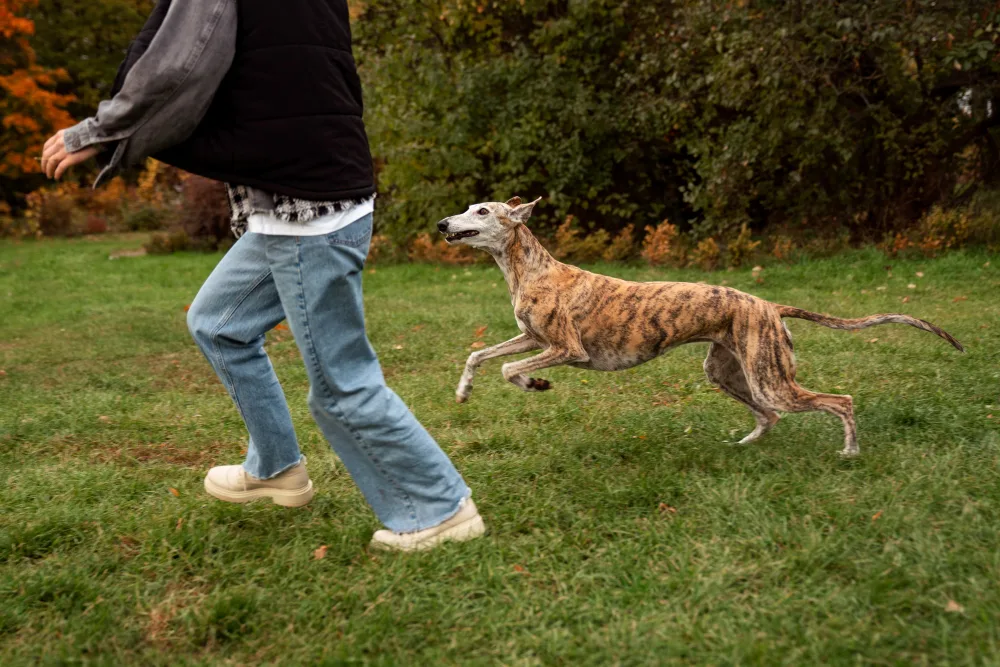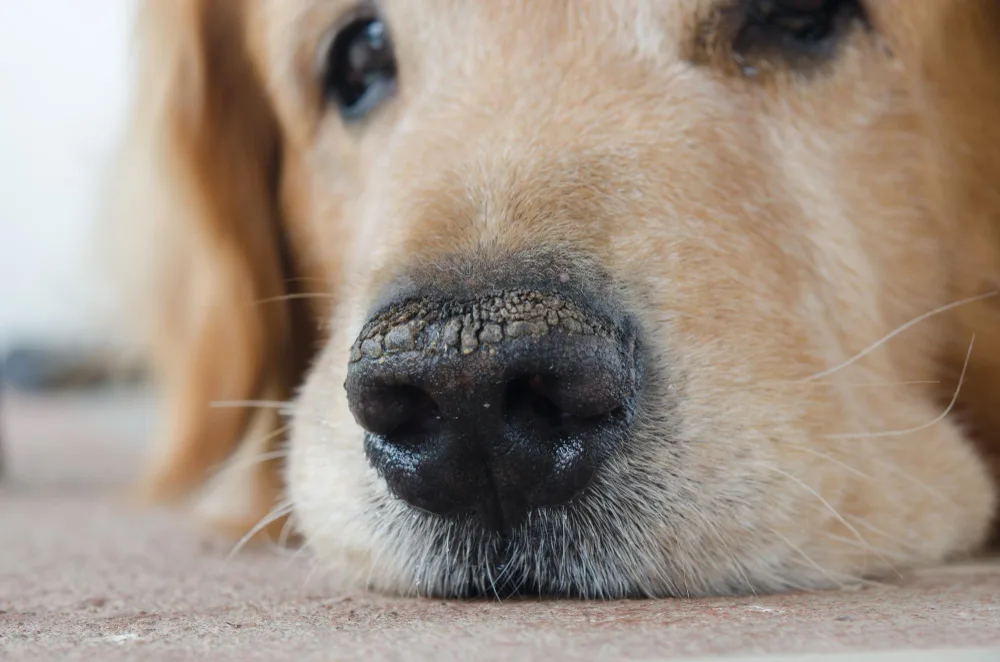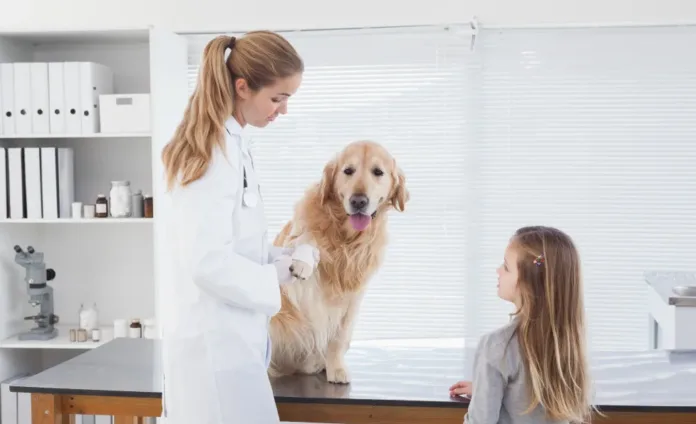Signs your dog needs to be neutered aren’t always obvious, but recognising them early can save stress, accidents, and even health issues down the line. Neutering your dog isn’t just a “get it done” procedure; it’s a crucial step for their health, safety, and happiness. In the UK, around 68% of dogs are neutered. More female dogs (75%) than males (63%) are neutered, which highlights just how important this step is.
Neutered dogs tend to roam less, mark territory less, and are generally calmer, making life easier for everyone. Beyond behaviour, neutering protects them from testicular cancer, prostate problems and helps prevent unwanted litters. Just like you might read a cat’s body language to understand a feline’s mood, your dog communicates through behaviours. Spotting these cues early could mean the difference between a stressed dog and a happy, healthy companion.
Spotting the signs your dog needs neutering
Aggression: Growls, snaps, and turf wars
If your pooch is suddenly a bit of a tough guy, growling, snapping, or picking fights with other dogs, testosterone might be calling the shots. Neutering often reduces male aggression, helping your dog play nicely instead of turning every walk into a showdown.
Pee-lease stop marking everywhere

Marking territory is an instinct in unneutered males. If your dog is turning your home into their personal bathroom, neutering might help. Frequent marking, on furniture, doorways, or even during walks, is often linked to testosterone-driven territorial behaviour. Reducing hormones can save your carpets and your sanity.
Look out for:
- Indoor leg-lifting
- Frequent outdoor marking
- Marking around new visitors
Roaming instincts and the need for freedom
Before we hit the midway point, remember: signs your dog needs to be neutered often include roaming. Unneutered dogs are natural wanderers, driven to find a mate. If your dog is constantly trying to escape, jump fences, or bolt during walks, neutering can calm this instinct. It keeps them safer and closer to home, a win-win for you and your furry friend.
Hump happens: When mounting goes overboard
Mounting isn’t always sexual; it’s often a mix of dominance, excitement, or frustration. Excessive mounting can create awkward social situations or stress for your dog. Neutering can curb these behaviours, helping your dog engage appropriately with people and other pets.
Signs to notice:
- Persistent mounting despite redirection
- Humping during play or social settings
- Frustration when stopped
Hyper hound: Restless or overexcited

After the middle of the blog, it’s worth noting that signs your dog needs to be neutered also include hyperactivity or restlessness. Some unneutered dogs are bundles of constant energy, especially when a female is in heat nearby. This can make training tricky and daily life a little chaotic. Neutering helps stabilise their energy, making walks, cuddles, and playtime more enjoyable for both of you.
Health perks that go beyond behaviour
Neutering isn’t just about stopping naughty behaviours, it’s a health booster too.
- No Testicular Cancer: Removing the testicles eliminates the risk entirely.
- Prostate Peace: Fewer prostate problems mean fewer vet visits and less discomfort.
- Better for the Pack: Preventing unwanted litters reduces stray and shelter populations.
This shows that neutering isn’t just practical; it’s a clear sign of care for your dog’s long-term health and well-being.
When’s the right time?
Most vets recommend neutering between six and twelve months, though there’s no one-size-fits-all. Larger breeds may benefit from waiting a little longer for bone growth, while smaller breeds are usually fine earlier. Always chat with your vet to pick the best timing for your dog’s breed, size, and health.
Quick tips:
- Ask your vet about the ideal age for your breed
- Factor in behavioural and health benefits
- Plan for post-surgery care, lots of rest and cuddles required
Reading your dog’s behaviour: The key to health

Just like cat body language can reveal subtle moods, your dog communicates constantly through body posture, tail position, facial expressions, and vocal cues. Paying attention to these signals not only helps spot behavioural issues early but also shows your dog that you care about their well-being.
Take action for a happier dog
If you’ve noticed aggression, marking, roaming, excessive mounting, or hyperactivity, these are all clear signs your dog needs to be neutered. Neutering can reduce stress, prevent health problems, and create a calmer, happier pet. Watching your dog closely, recognising these signs, and taking timely action demonstrates love, care, and responsible pet ownership. Always consult a qualified vet before proceeding. Your dog deserves the best, and you’ll gain peace of mind knowing they’re healthier, happier, and safer.
